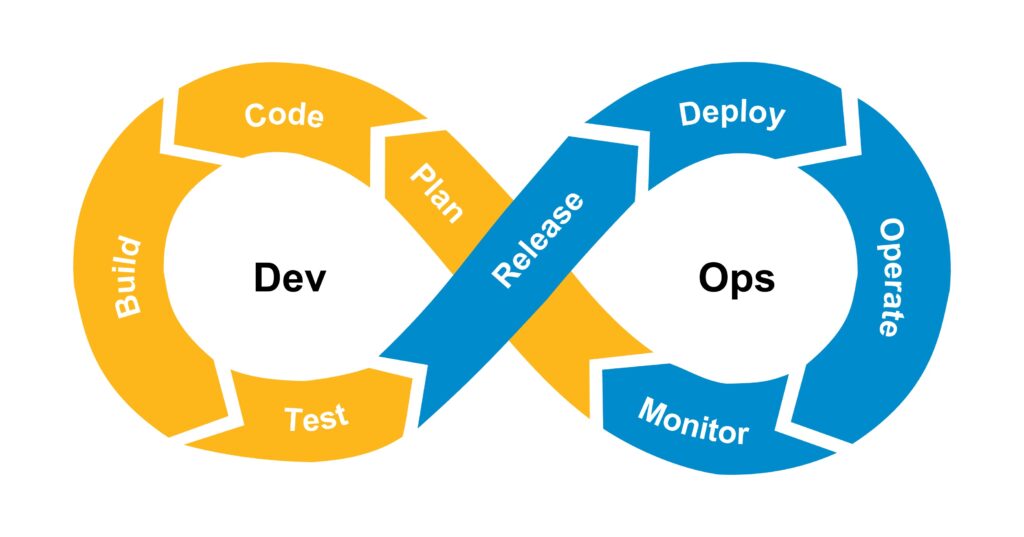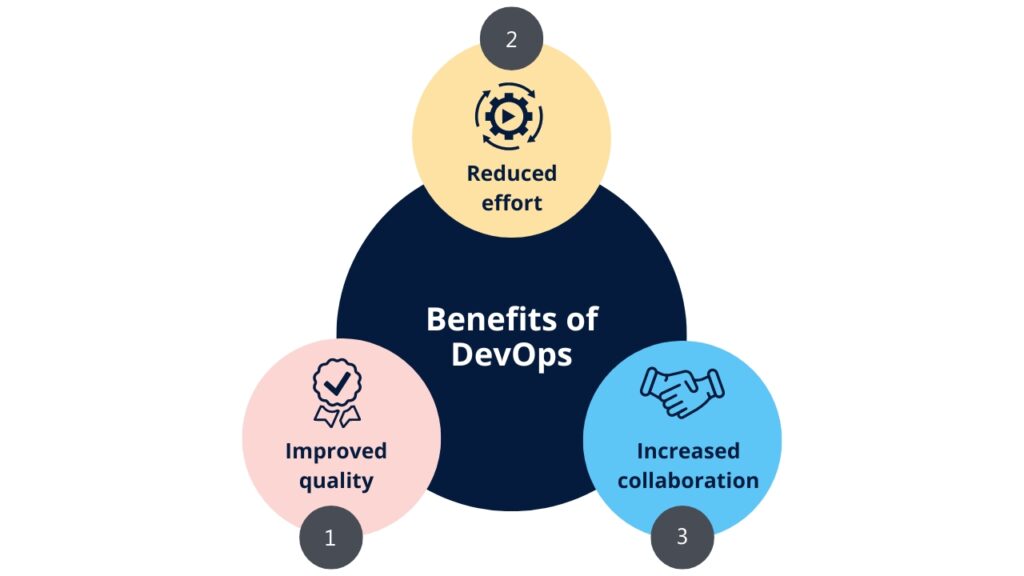Technology projects require maintenance throughout the entire lifecycle, from development to deployment and monitoring. If maintaining a project from version to version becomes a manual process, it can become quite strenuous. Developers must take special considerations at each stage to ensure smooth rollouts. Failure to do so can result in extended-release planning cycles until the software is ready for use by end users.
Development and IT Operations teams may spend unnecessary cycles supporting and fixing buggy software. And even worse, failed software releases can impact a company’s financial performance through operational inefficiencies, lost sales, and customer attrition. Failure to maintain working software can impact SLAs, and regulatory compliance for some industries, resulting in fines or legal action.
Successful organizations have adapted and created a set of best practices for governing projects called DevOps.
What is DevOps?
DevOps aims to create a common culture that brings together the people, processes, and technology to deliver value (i.e., working software) to end-users.

By automating many manual maintenance steps, a successful DevOps plan can also reduce the time it takes to develop, test, and deploy software. Many companies are rushing to implement DevOps to avoid the high costs of manually maintaining projects.
What are the benefits of DevOps?
If you’re asking this question, keep reading. Outlined below are three key benefits of implementing DevOps in your organization.

1. Improved quality
- Standardized tools and processes (i.e., Azure DevOps and Agile Project Management) help keep quality consistent across projects and releases.
- Quality control implemented through source control branching, code reviews, environment management, release management, etc.
- Reduced fire drills and break-fix measures as a result of following DevOps best practices.
2. Reduced effort
- Fewer manual processes and interventions through improved automation.
- Lower effort to support/maintain because solutions have gone through the appropriate governance and management processes.
- Leverage templates for common infrastructure builds/configurations to accelerate new projects forward in the future.
3. Increased collaboration
- Agile project management structure encourages frequent collaboration among teams.
- Improved communication channels enable the team to identify, track, and manage risks as they arise.
- Clear direction and prioritization through collaboration between stakeholders, developers, and end-users.
Hopefully, this helps you better understand some of the benefits that implementing DevOps can bring to your business. Implementing DevOps is a journey and is more challenging than installing a package, flipping a switch, or buying new technology.
At Fractal, we specialize in assisting customers at any maturity level in their DevOps journey. We offer strategic planning, technology assessments, proof of concepts, and the technical resources necessary to kickstart your Azure DevOps implementation. Azure for DevOps is a comprehensive platform that provides a wide range of DevOps tools and services and seamlessly integrates with other Azure services, allowing for a unified and scalable solution.
If you’re interested in learning more about how Fractal can help you implement DevOps in your Azure environment, please get in touch with our experts for additional information.


